Selected Projects
This is a collection of on-going and past projects from academic and industry collaborations. Most descriptions have links for more information or relevant publications. If you want to learn more or are interested in working together, please reach out!
Novel Diagnostic Modalities for Pediatric Airway Stenosis
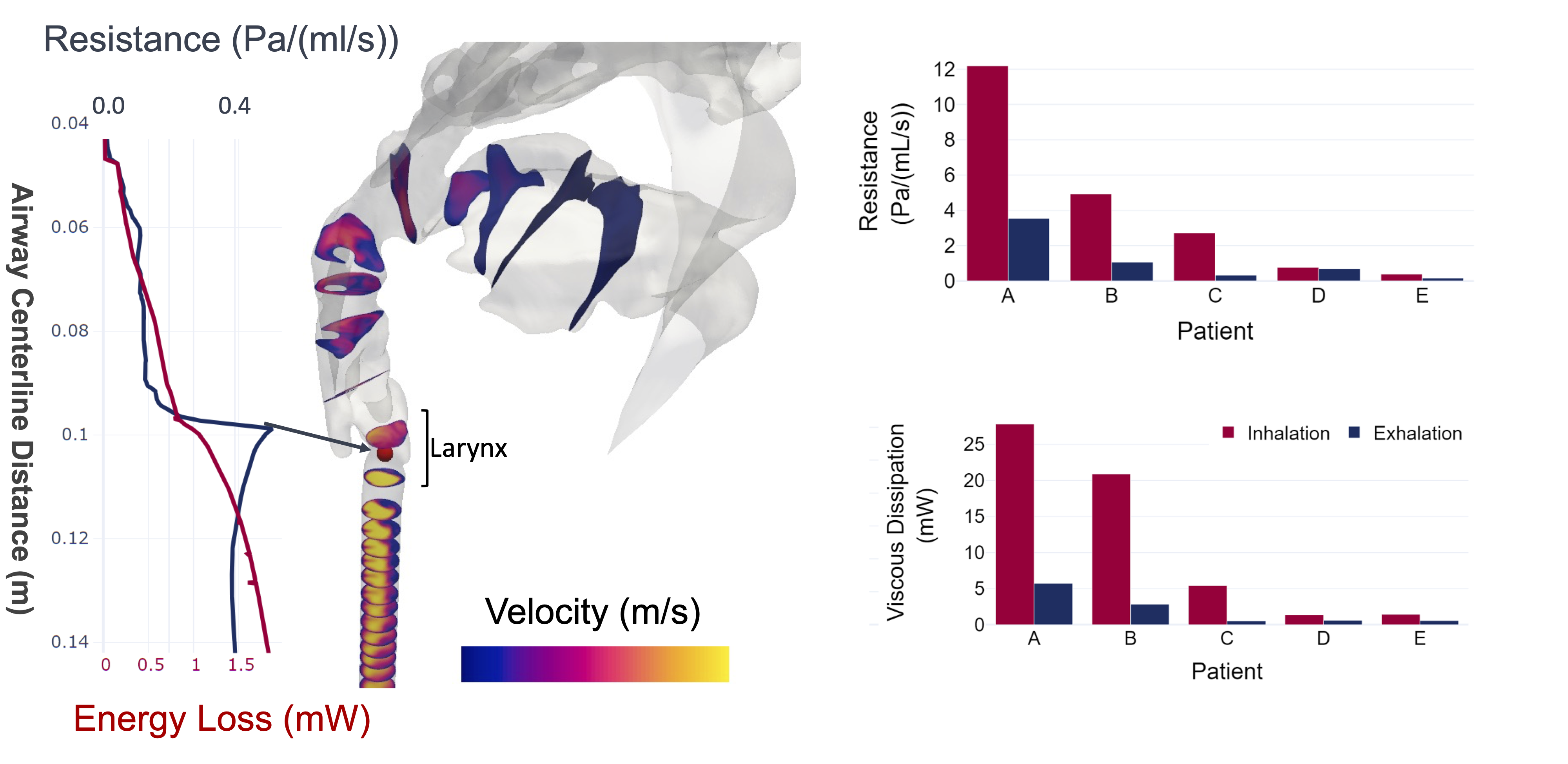
We are developing a suite of engineering analysis and medical imaging based tools to investigate the airflow dynamics in patients with Robin Sequence, Tracheal Compression, and Subglottic Stenosis. These pathologies are characterized by an obstruction in the airway, increased work of breathing, decreased quality of life and possible mortality. Using a combination of in-silico and in-vitro techniques we quantify the airflow dynamics in diseased patients. By comparing engineering metrics and clinical outcomes, we aim to risk stratify patients and identify the need for surgical interventions. Here, a combination of 4D-CT & CFD is used to quantify flow profile in Robin Sequence patients, and then risk stratify a pilot set of patients based on severity of breathing resistance. Our risk ranking was found to correlate with clinical severity.
Development of a low-emission biomass cookstove
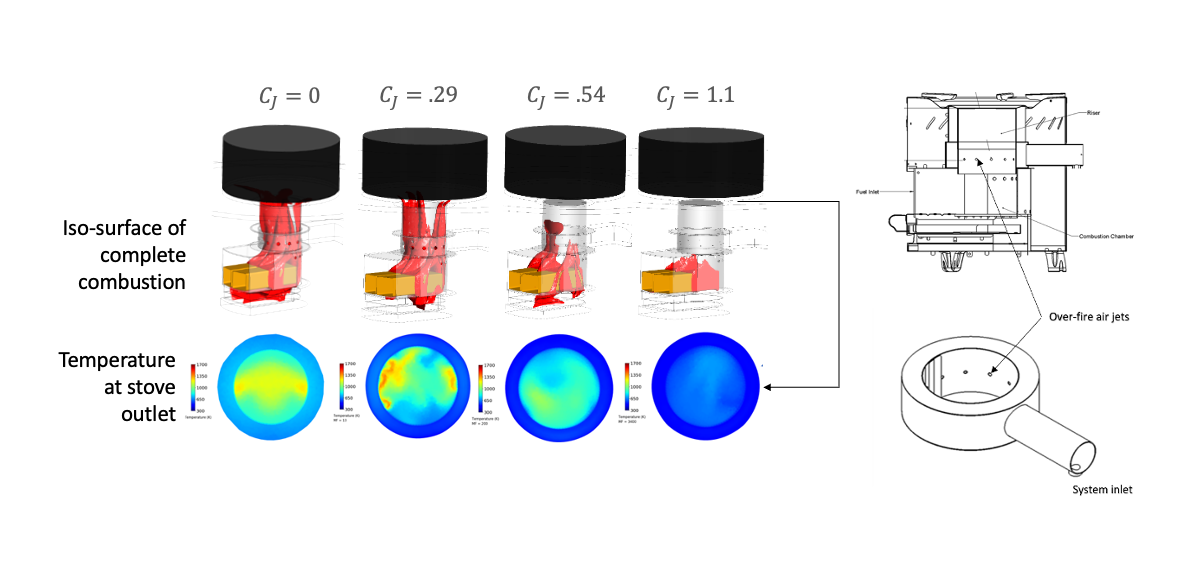
Nearly half the world’s population still rely on respiratory-harming biomass stoves for cooking and heating. We leveraged air injection technology to reduce particulate emissions by 90% in biomass cookstoves. CFD results show improved mixing and more complete combustion with increasing jet momentum, Cj. Open-source designs were integrated into two manufactured stoves.
Prediction of Aneurysm Treatment Outcome using Computational Fluid Dynamics
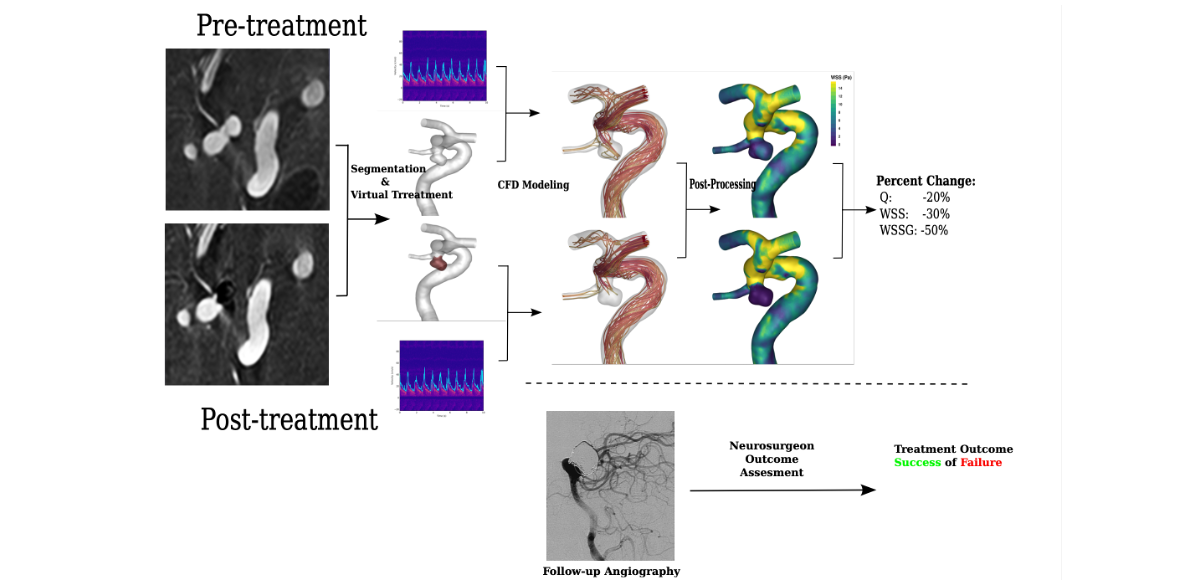
The primary treatment method for cerebral aneurysms are endovsacularly deployed coils and stents, however high rates of treatment failure persist. We developed a computational pipeline that incorporates patient-specific anatomy, blood-velocity, and pressure data to model blood-flow in patients before and after treatment. By comparing changes in engineering metrics following treatment to patient outcomes, we identify metrics that are predictive of treatment failure - enabling data-driven treatment prescription.
Experimental Characterization of Anerusym Fluid Mechanics
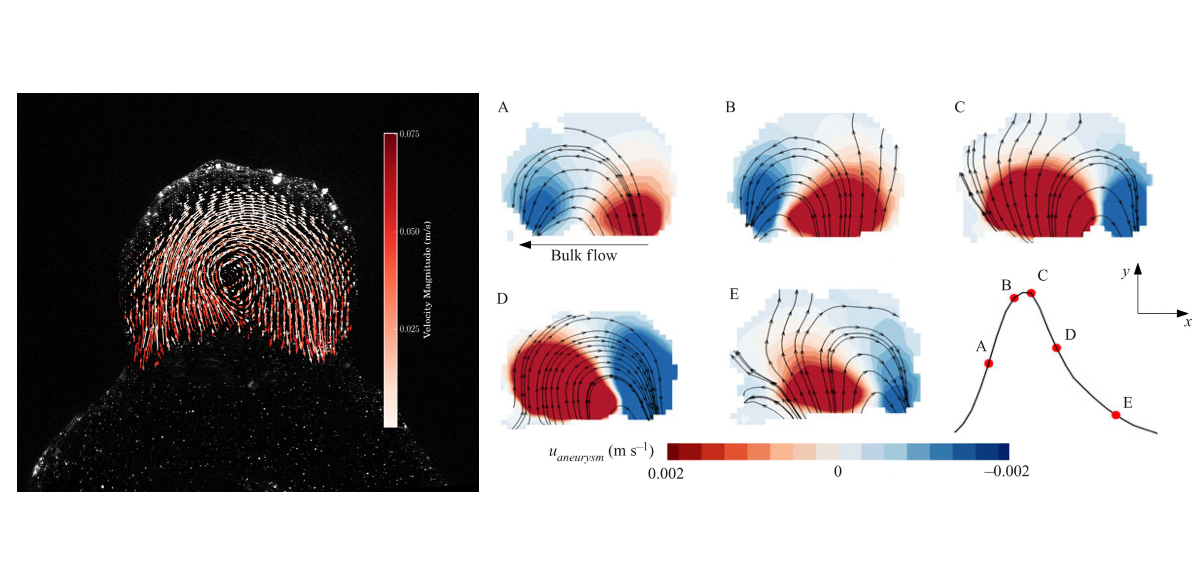
To further investigate the possible mechanics of cerebral aneurysm treatment failure, particle image velocimetry measurements were obtained from idealized treated aneurysm models. It was found that under certain flow and anatomic conditions, flow inside the aneurysm cavity was found to oscillate direction during the cardiac cycle, creating a flow environment that is preventative of clot formation and healing.
H2Go: Expanding Irrigation Access
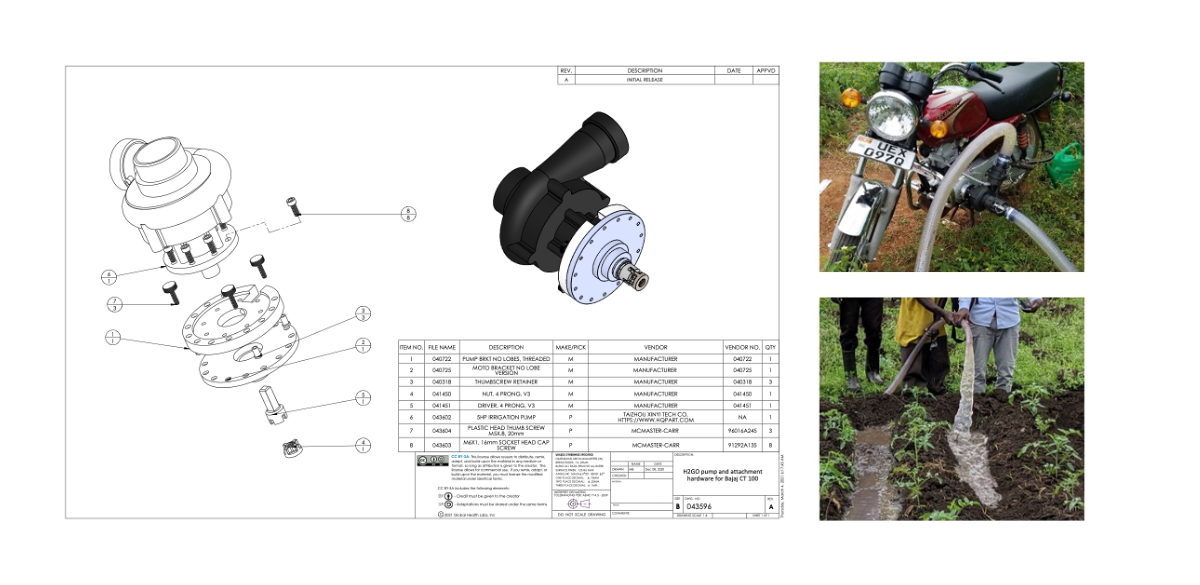
Access to irrigation water is a significant barrier to crop production throughout the developing world. We developed a pumping system that is powered by motorcycles - the ubiquitous mode of transportation in the areas of need. A business model was established and tested in Uganda that created an excess income for motorcycle/taxi drivers and increased irrigation access for farmers. See here for more information.